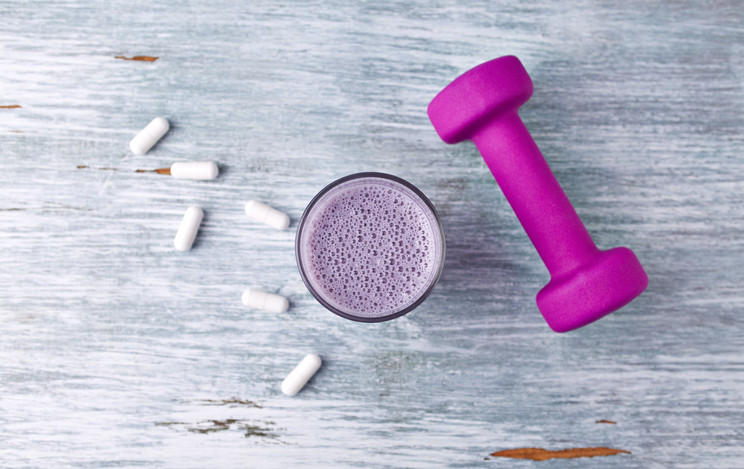
5 timeless habits for better health

What are the symptoms of prostate cancer?

Is your breakfast cereal healthy?

When pain signals an emergency: Symptoms you should never ignore

Does exercise give you energy?

Acupuncture for pain relief: How it works and what to expect

How to avoid jet lag: Tips for staying alert when you travel

Biofeedback therapy: How it works and how it can help relieve pain

Best vitamins and minerals for energy

Should you take probiotics with antibiotics?
Heart Health Archive
Articles
Eating can cause low blood pressure
Postprandial hypotension, low blood pressure that occurs after eating, can cause dizziness, chest pain, nausea, or other issues, particularly in the elderly.
Recognizing and treating depression may help improve heart health
How to lower your cholesterol without drugs
Trans fats and saturated fats can raise LDL cholesterol levels. A diet rich in unsaturated fats, whole grains, and fruits and vegetables can lower them.
Aspirin for heart attack: Chew or swallow?
Immediate first aid works to minimize blood clotting triggered by plaque ruptures
How should you take aspirin for a heart attack? You've always been healthy, but you seemed to run out of steam at your wife's 60th birthday dinner last week. And now your chest feels heavy, as if you're in a vise. You take some antacids, even though it's 7:00 a.m. and you haven't even had breakfast. But you get no relief, and the pain is spreading to your jaw and shoulder. You call your wife, who takes one look at you and rushes to the phone. After calling 911, she brings you an aspirin and some water.
Your wife got it right: You may be having a heart attack, and you need to get to the hospital fast. You also need to get some aspirin into your system quickly — but should you chew the tablet or swallow it?
Lifestyle changes are important even if you take medications
People who are prescribed medication for high cholesterol or high blood pressure may be more likely to gain weight and less likely to exercise, but for those who are on such medications, it’s even more important to commit to making healthier lifestyle choices.
How does cardiovascular disease increase the risk of severe illness and death from COVID-19?
Initial investigation into COVID-19 focused on its respiratory effects, but a more recent report describes serious cardiovascular complications in people with pre-existing heart disease. How does this underlying condition increase risk for these people?
The dairy dilemma
How much dairy should you consume each day? And are some dairy products or milk alternatives better for heart health than others?
These days, the supermarket dairy aisle can be tricky to navigate. Along with the nonfat, 2%, and full-fat cow's milk lining the refrigerated shelves, you'll often find a dizzying array of plant-based milk alternatives made from different nuts, beans, and grains. Even the yogurt and cheese sections now feature nondairy products, such as coconut yogurt and cashew cheese.
The expanded choices reflect the growing trend toward plant-based diets, which people embrace for a range of reasons. Some people minimize or avoid meat, dairy, and other animal-based foods because of religious reasons or concerns about environmental sustainability or animal welfare. People who are focused mainly on a heart-healthy diet know to steer clear of red and processed meat. But when it comes to dairy products, the story isn't quite as straightforward.
Have heart problems? Harvard researchers caution against marijuana use
News briefs
Smoking tobacco is a major cause of high blood pressure, heart disease, heart attack, and stroke. But did you know that smoking marijuana may also be associated with the same problems? A Harvard research review published Jan. 28, 2020, in the Journal of the American College of Cardiology found that more than two million U.S. adults with cardiovascular disease are smoking pot despite the risks, although they may not be aware of the potential link to heart problems. Studies on marijuana use have been limited, primarily because the substance has been illegal for decades. Scientists are calling for more research, since medical marijuana use is now legal in more than 30 states, and recreational use is legal in 11 states and the District of Columbia. "Until we have more answers about the connection between using marijuana and heart problems, you should consider avoiding smoking any form of pot if you have known heart disease or a high risk for a heart attack or stroke," suggests Dr. Deepak L. Bhatt, a study author and editor in chief of the Harvard Heart Letter.
Image: © Alexandrum79/Getty Images
Can lifestyle changes affect atrial fibrillation?
In particular, cutting back on alcohol may lessen the burden of this common heart rhythm disorder.
As many as six million people in the United States have atrial fibrillation, a rapid, irregular heartbeat that usually comes and goes without warning. Commonly known as afib, it can leave people lightheaded, breathless, and extremely tired. Even more worrisome is the fact that people with afib face four to five times the risk of stroke than those without the condition.
Medications and procedures can help ease afib symptoms and reduce the risk of stroke. "But people frequently ask me and my colleagues whether any lifestyle factors can make a difference in afib," says Dr. Paul Zei, director of the Comprehensive Atrial Fibrillation Program at Harvard-affiliated Brigham and Women's Hospital. The answer is yes — and a provocative new study has strengthened the evidence about the role of alcohol in people with afib (see "Does abstinence make the heartbeat stay steady longer?").
Grain of the month: Oats
Among all the grains, oats appear to be the most effective when it comes to lowering cholesterol. In fact, back in 1997, oatmeal was granted the first food-specific health claim permission by the FDA, based on research showing that soluble fiber from oats lowers the risk of heart disease.
Soluble fiber, which dissolves in water, forms a gel in the intestines. This gel traps some of the cholesterol in your body, so it's eliminated as waste instead of entering your arteries. Some evidence also suggests that eating oats helps regulate blood sugar levels and helps you feel full.

5 timeless habits for better health

What are the symptoms of prostate cancer?

Is your breakfast cereal healthy?

When pain signals an emergency: Symptoms you should never ignore

Does exercise give you energy?

Acupuncture for pain relief: How it works and what to expect

How to avoid jet lag: Tips for staying alert when you travel

Biofeedback therapy: How it works and how it can help relieve pain

Best vitamins and minerals for energy

Should you take probiotics with antibiotics?
Free Healthbeat Signup
Get the latest in health news delivered to your inbox!
Sign Up











